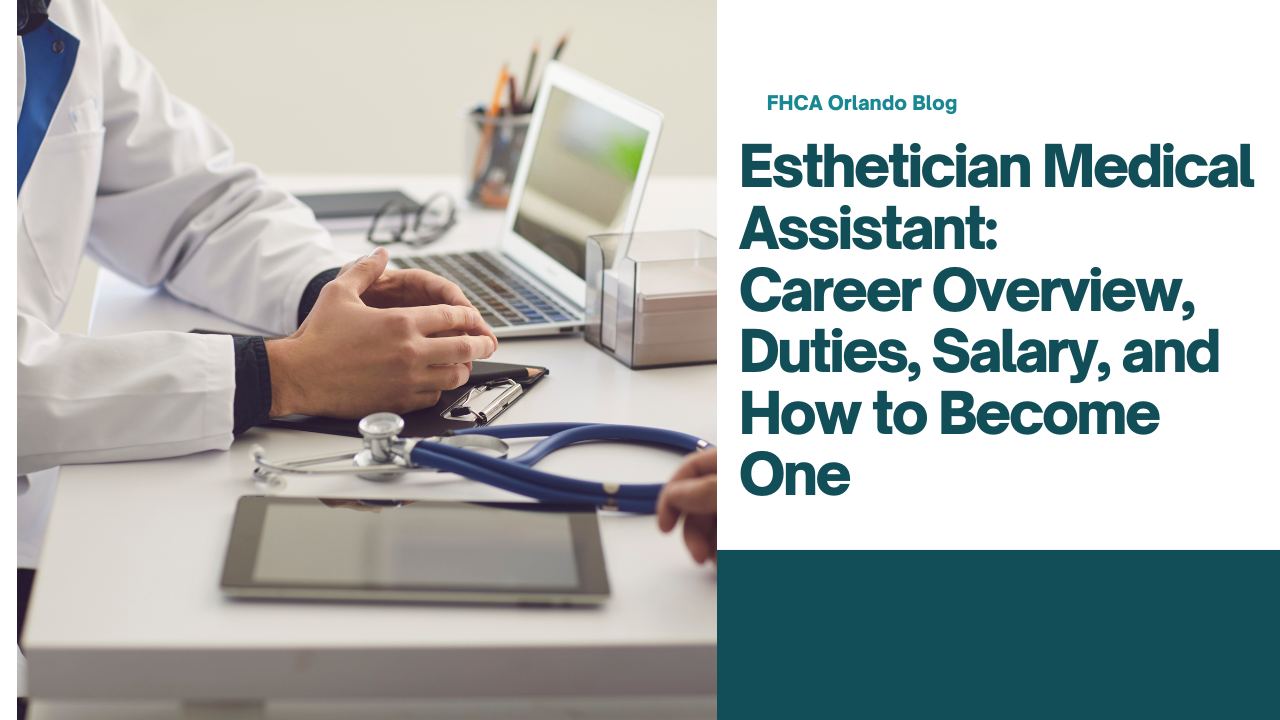Top 8 Places Where Phlebotomists Can Work in Orlando 2026
Dec 18, 2025
Phlebotomy is a fast-paced, hands-on career with wide application across healthcare. Once certified, you’ll find diverse phlebotomy technician work settings in Orlando, from hospitals to research labs, where your skills are essential for patient care and accurate diagnostics.
At Florida Health Care Academy Orlando, we prepare you with clinical training and job-ready skills to pursue work in many of these environments.
Table of Contents
- What does a phlebotomist do in Orlando 2026
- Where can phlebotomists work after certification in Orlando
- How to become a phlebotomist in Orlando 2026
- Career advancement opportunities in phlebotomy
- Places where phlebotomists can work Orlando 2026 FAQs
- Take the first step toward your phlebotomy career with FHCA Orlando
What does a phlebotomist do in Orlando 2026
Helping patients every day
Phlebotomists collect blood samples for testing, transfusions, or research. You play a direct role in patient care by helping diagnose illnesses and monitor treatments.
Working alongside healthcare teams
In our phlebotomy program Orlando, you’ll collaborate with nurses, lab techs, and physicians to ensure samples are handled properly. Clear communication and technical precision are key in every setting.
Where can phlebotomists work after certification in Orlando
1. Hospitals and medical centers
Hospitals are one of the most common places phlebotomists can work. You’ll handle urgent collections, assist with inpatient rounds, and respond to high-volume needs in emergency or surgery departments.
2. Diagnostic laboratories
Labs process samples for a wide range of tests. Working in this setting means efficiency, attention to detail, and following strict protocols for specimen handling and labeling.
While working in labs, you may collaborate closely with lab technicians, though the roles are not the same. If you're curious about how they differ, check this breakdown of phlebotomist vs lab technician.
3. Blood banks and donation centers
Phlebotomists draw blood from donors, monitor their condition during the process, and follow strict procedures for donation safety. These roles often include public interaction and outreach.
4. Physicians' offices and private clinics
In smaller practices, you may be the only person collecting samples, so your role also includes prepping patients, recording data, and managing supplies. It’s ideal for building relationships with repeat patients.
5. Long-term care and nursing homes
Phlebotomists working with older adults must be patient and precise. You’ll often perform draws at bedside and need to adapt to different health conditions and mobility levels.
6. Mobile phlebotomy services
In this flexible job environment, you travel to patients’ homes, workplaces, or care facilities. It’s a growing option that offers independence and variety in your day-to-day routine.
7. Research and clinical trial facilities
Clinical studies need consistent, high-quality samples. Phlebotomists ensure that research protocols are followed and that all specimens meet scientific standards.
8. Correctional or military health units
In these specialized environments, your work supports ongoing medical care for unique populations. Training in safety procedures and adaptability is essential.
How to become a phlebotomist in Orlando 2026
Education and training you need
Start by completing a formal training program that covers anatomy, venipuncture, safety, and patient care. For full details, review the phlebotomist education requirements.
Getting real-world experience
Hands-on training is key. Look for opportunities to gain experience through labs, externships, or clinics. Here’s how to get phlebotomy experience while you train.
Earning your certification
After training, you’ll take a certification exam from an approved organization. If you’re unsure of the process, check out this guide on how to get a phlebotomy certification.
Career advancement opportunities in phlebotomy
Some phlebotomists use this role as a stepping stone toward other healthcare careers. If you're considering medical school, read more about is phlebotomy good for medical school and how it can support your path.
Specialization paths
With experience, you can specialize in pediatrics, oncology, or donor services. These niches require refined skills and open doors to focused roles.
Continuing education and CEUs
Phlebotomists often complete CEUs to keep certifications active and stay current with best practices. Continuing education can also prepare you for leadership roles.
Job stability and market demand
Phlebotomy remains a high-demand field in Florida. Learn more about long-term prospects and benefits in this breakdown of benefits of being a phlebotomist.
Places where phlebotomists can work Orlando 2026 FAQs
Whether you're training or recently certified, these FAQs clarify the most common phlebotomist job environments in Orlando and the types of facilities that actively hire new professionals.
Where do phlebotomists typically work in Orlando?
Most phlebotomists work in hospitals, labs, clinics, and blood banks.
What healthcare settings in Orlando hire phlebotomists?
Settings include diagnostic centers, nursing homes, research labs, and mobile services.
Do phlebotomists work in hospitals or clinics in Orlando?
Yes. Hospitals need phlebotomists for inpatient and ER draws, while clinics use them for routine testing.
Can phlebotomists work in labs or diagnostic centers in Orlando?
Absolutely. Labs rely on phlebotomists for accurate sample collection and documentation.
What entry-level jobs are available for phlebotomists in Orlando?
Entry-level roles include hospital tech, lab assistant, mobile phlebotomist, and donor specialist.
Take the first step toward your phlebotomy career with FHCA Orlando
Ready to enter a growing, hands-on field that offers flexibility and purpose? At Florida Health Care Academy Orlando, you’ll receive the training and support needed to thrive in any phlebotomy setting.
Get started today with the phlebotomy program Orlando, and secure your future in healthcare through expert-led training and certification prep.
Complete your Enrollment now to take the first step.









